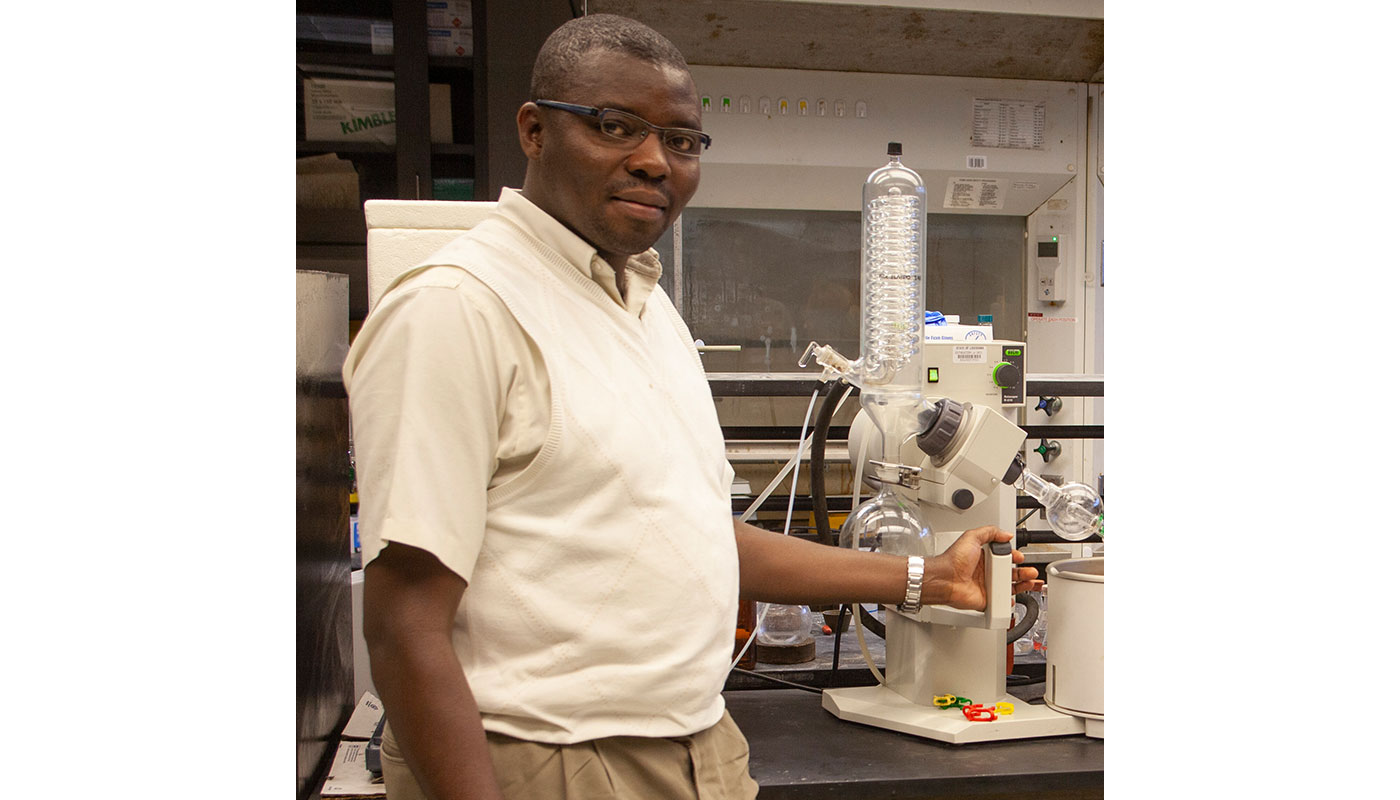Southeastern Louisiana University Professor of Organic Chemistry Jean Fotie was awarded a $265,000 grant from the National Science Foundation. The purpose of the grant is to develop greener and sustainable catalytic methods for the reductive functionalization of carbon dioxide (CO2).
“Reducing the emission of carbon dioxide, one of the most significant long-lived greenhouse gases, into the atmosphere is one of the major challenges of our time,” said Fotie, a resident of Ponchatoula.
Despite remarkable advances toward the capture and storage of CO2, Fotie believes that a large-scale transformation of the abundant and non-toxic feedstock into valued-added chemicals could provide an important incentive for CO2 recycling.
“More than the obvious environmental remediation, this approach will be like turning CO2 into cash, and there is no better incentive than that for the chemical industry,” Fotie explained. “Of course, this requires the development of practical and sustainable catalytic systems that can enable a streamline fixation and conversion of CO2 into useful chemicals, preferably via continuous flow industrial processes.”
“Dr. Fotie has been one of our most productive researchers for years, so it is no surprise that he has received this prestigious award,” said Dean of the College of Science and Technology Dan McCarthy. “It is not just the quality of the work that distinguishes his research, but it is the fact that he includes so many of our students in his research. This grant will not only help the scientific community, but will also lead to an outstanding educational experience for our students.”
“The project objective is to develop a better understanding of how a number of active precious metals on one hand, and less active but earth-abundant metals on the other hand, respectively nano-dispersed in a range of sol-gel-derived organically modified silicates, would behave toward the reductive functionalization of CO2,” said Fotie.
More importantly, Fotie said, these activities will provide a unique opportunity to create a research environment that combines three very different groups of students at different stages of their education, namely the high school students enrolled in Southeastern’s Math-Science Upward-Bound program, Southeastern undergraduate students, and Southeastern integrated science and technology master’s students.
“This distinctive learning environment is designed to enable the younger generation to mirror their future through the lenses of their observations and interactions with the advanced generation,” Fotie explained. “Hopefully, this amazing group of researchers will be able to develop a new catalytic system that can enable the conversion of CO2 into important chemicals, a method that could eventually find application in continuous flow industrial processes.”
